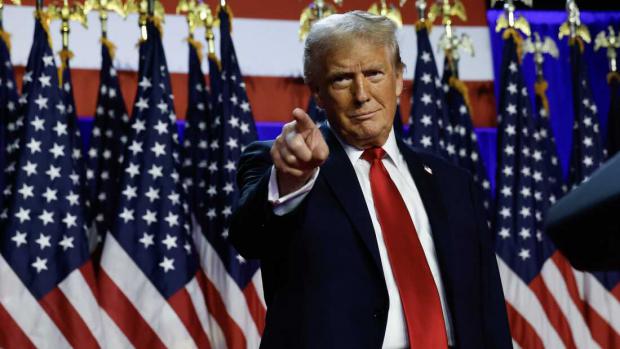
Breaking News
 Battleborn Batteries Responds! Their Overheating Device is a "Feature" not a "Problem
Battleborn Batteries Responds! Their Overheating Device is a "Feature" not a "Problem
 Actor Liam Neeson Outs Himself as MAHA After Narrating Pro-RFK Jr. Documentary Slamming...
Actor Liam Neeson Outs Himself as MAHA After Narrating Pro-RFK Jr. Documentary Slamming...
 Kyle Rittenhouse announced on social media Wednesday that he has tied the knot.
Kyle Rittenhouse announced on social media Wednesday that he has tied the knot.
 JUST IN: President Trump Grants Tina Peters Pardon
JUST IN: President Trump Grants Tina Peters Pardon
Top Tech News
 Scientists Discover Gel to Regrow Tooth Enamel
Scientists Discover Gel to Regrow Tooth Enamel
 Vitamin C and Dandelion Root Killing Cancer Cells -- as Former CDC Director Calls for COVID-19...
Vitamin C and Dandelion Root Killing Cancer Cells -- as Former CDC Director Calls for COVID-19...
 Galactic Brain: US firm plans space-based data centers, power grid to challenge China
Galactic Brain: US firm plans space-based data centers, power grid to challenge China
 A microbial cleanup for glyphosate just earned a patent. Here's why that matters
A microbial cleanup for glyphosate just earned a patent. Here's why that matters
 Japan Breaks Internet Speed Record with 5 Million Times Faster Data Transfer
Japan Breaks Internet Speed Record with 5 Million Times Faster Data Transfer
 Advanced Propulsion Resources Part 1 of 2
Advanced Propulsion Resources Part 1 of 2
 PulsarFusion a forward-thinking UK aerospace company, is pushing the boundaries of space travel...
PulsarFusion a forward-thinking UK aerospace company, is pushing the boundaries of space travel...
 Dinky little laser box throws big-screen entertainment from inches away
Dinky little laser box throws big-screen entertainment from inches away
 'World's first' sodium-ion flashlight shines bright even at -40 ºF
'World's first' sodium-ion flashlight shines bright even at -40 ºF
Trump's "Day One" Dictatorship

Then, a few days ago, he confirmed that as soon as he becomes president, he intends to declare a "national emergency" to justify his use of the military establishment to round up and deport an estimated 13 million immigrants living here in the United States without official permission.
I know that it's not considered a politic thing to do to bring up acts committed by German leader Adolf Hitler. But I disagree. When it comes to dictatorship, I think most everyone would agree that Hitler sets the standard. Thus, if a ruler does something that Hitler did, I think that a presumption arises that that act should be viewed with some suspicion. Therefore, sometimes such a comparison can be helpful.
When I read that Trump intended to declare a "national emergency" in order to exercise extraordinary powers that he could not otherwise legally exercise, what came immediately to my mind was the Enabling Act.
When terrorists fire-bombed the Reichstag, Hitler went to the German parliament, declared that there was a "national emergency" involving terrorism and communism, and sought the grant of extraordinary emergency powers. If the Reichstag had voted against him, he could not have exercised such powers, at least not legally.
Hitler promised that the grant of "emergency" powers would be only "temporary." As soon as the emergency was over, the powers could be taken away from him. '
The Reichstag agreed to give Hitler the "temporary" emergency powers he sought. The legislators did that with the Enabling Act, which was enacted on March 23, 1933. That was many years before Hitler would implement the Holocaust.
One big problem is that these extraordinary emergency powers enabled Hitler to consolidate power so that by the time the Enabling Act was set to expire, it was too late to stop his permanent dictatorial rule. With his skillful use of the military and the Gestapo, he was able to ensure that resistance to his dictatorial rule was futile.
Interestingly, however, whenever the Enabling Act (or a renewal of it) was set to expire, Hitler would dutifully ask the Reichstag for another renewal of the law. He did this all the way to the day he died.

 Build a Greenhouse HEATER that Lasts 10-15 DAYS!
Build a Greenhouse HEATER that Lasts 10-15 DAYS! 

